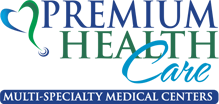Speech Pathologist the Voice of Empowerment
Celebrating National Speech Pathologist Day
Every year on May 18th, we celebrate National Speech Pathologist Day, a day dedicated to recognizing the vital contributions of speech-language pathologists (SLPs) in improving communication and swallowing abilities in individuals of all ages. This day provides an opportunity to honor these professionals who work tirelessly to empower individuals with speech, language, and swallowing disorders, enhancing their quality of life and promoting their ability to participate fully in daily activities. This article explores the critical role of speech pathologists, the various disorders they treat, and the profound impact of their work on individuals and society.
The Role of Speech Pathologists
Who Are Speech Pathologists?
Speech pathologists, also known as speech-language pathologists or SLPs, are healthcare professionals specializing in diagnosing, treating, and preventing speech, language, communication, and swallowing disorders. They work with people of all ages, from infants to the elderly, in various settings, including schools, hospitals, rehabilitation centers, private practices, and research institutions.
Key Responsibilities
Speech pathologists perform a wide range of duties, including:
- Assessment and Diagnosis: Conducting comprehensive evaluations to diagnose speech, language, voice, and swallowing disorders.
- Treatment Planning: Developing individualized treatment plans based on the unique needs and goals of each patient.
- Therapeutic Interventions: Implementing evidence-based therapies to improve communication and swallowing functions.
- Collaboration: Working with other healthcare professionals, educators, and families to provide holistic care.
- Education and Advocacy: Educating patients, families, and the public about communication disorders and advocating for individuals with these conditions.
Types of Disorders Treated by Speech Pathologists
Speech pathologists address a wide array of disorders, including but not limited to:
1. Speech Disorders
These involve difficulties in producing sounds correctly, leading to unclear speech. Common articulation disorders include lisping and mispronunciation of sounds.
These occur when there is a pattern of sound errors. For instance, a child might consistently substitute one sound for another (e.g., saying “wabbit” instead of “rabbit”).
Fluency disorders, such as stuttering, involve interruptions in the flow of speech. Individuals may experience repetitions, prolongations, or blocks when speaking.
2. Language Disorders
These involve difficulties understanding spoken or written language. Individuals may struggle to follow instructions, understand questions, or comprehend stories.
Expressive Language Disorders:
These involve difficulties expressing thoughts and ideas. Individuals may have limited vocabulary, struggle to form sentences, or have trouble finding the right words.
These affect the social use of language. Individuals may have trouble with conversational skills, understanding nonverbal cues, or using language appropriately in social contexts.
3. Voice Disorders
Voice disorders involve problems with pitch, volume, or quality of the voice. Conditions such as vocal nodules, polyps, or paralysis can affect an individual’s ability to speak clearly and comfortably.
4. Swallowing Disorders (Dysphagia)
Swallowing disorders can result from various medical conditions, including stroke, neurological disorders, or head and neck cancers. Speech pathologists assess and treat dysphagia to ensure safe and efficient swallowing.
5. Cognitive-Communication Disorders
These involve difficulties with communication skills that are affected by cognitive impairments, such as memory, attention, or executive function deficits. Conditions like traumatic brain injury or dementia often involve cognitive-communication disorders.
Impact of Speech Pathologists
The work of speech pathologists has a profound impact on individuals and society. Here are some of the ways they make a difference:
1. Enhancing Communication Skills
Effective communication is essential for social interaction, education, and employment. Speech pathologists help individuals improve their communication skills, enabling them to express themselves, understand others, and build relationships.
2. Supporting Academic Success
Speech and language skills are foundational for learning. In schools, speech pathologists work with children who have speech or language disorders, providing interventions that support literacy, comprehension, and overall academic achievement.
3. Improving Quality of Life
For individuals with voice or swallowing disorders, speech pathologists provide therapies that improve their ability to speak and eat comfortably. This enhances their quality of life and reduces the risk of complications such as malnutrition or aspiration pneumonia.
4. Promoting Independence
By addressing communication and swallowing disorders, speech pathologists help individuals achieve greater independence in their daily lives. This is particularly important for those recovering from conditions like stroke or traumatic brain injury.
5. Supporting Social Integration
Effective communication is key to social participation. Speech pathologists help individuals develop the skills needed to engage in social activities, build relationships, and participate in their communities.
The Future of Speech Pathology
The field of speech pathology continues to evolve, driven by advancements in research, technology, and clinical practices. Here are some trends and innovations shaping the future of speech pathology:
1. Telepractice
The use of telepractice, or teletherapy, has expanded significantly, especially during the COVID-19 pandemic. Telepractice allows speech pathologists to provide services remotely, increasing access to care for individuals in rural or underserved areas.
2. Technological Innovations
New technologies, such as speech-generating devices, apps, and virtual reality, are enhancing the effectiveness of speech therapy. These tools provide innovative ways to engage patients and support their progress.
3. Personalized Medicine
Advances in genetics and neuroscience are paving the way for more personalized approaches to speech therapy. Understanding the genetic and neurological underpinnings of speech and language disorders can lead to more targeted and effective interventions.
4. Interdisciplinary Collaboration
Speech pathologists increasingly collaborate with other healthcare professionals, educators, and researchers to provide comprehensive care. This interdisciplinary approach ensures that individuals receive holistic support that addresses all aspects of their health and well-being.
5. Increased Awareness and Advocacy
Efforts to raise awareness and advocate for individuals with communication and swallowing disorders are gaining momentum. Public education campaigns, professional organizations, and advocacy groups play a crucial role in promoting understanding and support for these individuals.
Celebrating National Speech Pathologist Day
National Speech Pathologist Day is an opportunity to celebrate and recognize the invaluable contributions of speech pathologists. Here are some ways to honor and support these professionals:
1. Express Gratitude
If you or a loved one has benefited from the services of a speech pathologist, take the time to express your gratitude. A simple thank-you note or message can mean a lot to these dedicated professionals.
2. Raise Awareness
Use social media and other platforms to raise awareness about the importance of speech pathology. Share information about the role of speech pathologists and the impact of their work on individuals and communities.
3. Support Professional Organizations
Consider supporting professional organizations such as the American Speech-Language-Hearing Association (ASHA) or other relevant groups. These organizations provide resources, advocacy, and professional development opportunities for speech pathologists.
4. Participate in Events
Join events and activities organized to celebrate National Speech Pathologist Day. These may include webinars, workshops, or community events that highlight the work of speech pathologists and the importance of communication health.
5. Advocate for Access to Care
Advocate for policies and initiatives that improve access to speech pathology services. Support efforts to ensure that individuals with communication and swallowing disorders receive the care and support they need.


